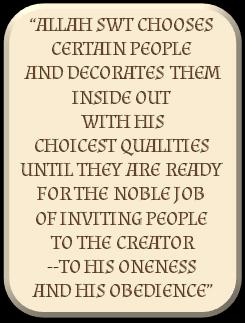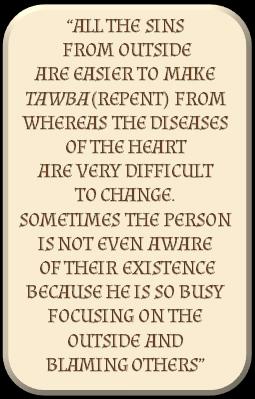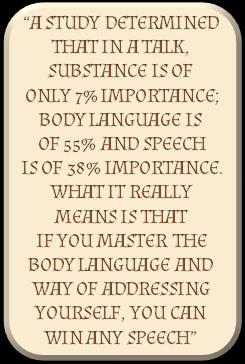|
||||||||||||||||||||||||||||||

|
||||||||||||||||||||||||||||||
 |
||||||||||||||||||||||||||||||
|
|
||||||||||||||||||||||||||||||
|
|
The Art Of Dawah
One of the highest forms of service to Allah is to invite His creation to His oneness and that in Islam is called d'awah. Da'wah in Arabic means invitation to a feast. This by extension means that the person who is intending to invite people to the feast must have made preparations because if he hasn't prepared the banquet, he is not only going to turn his guests hungry, he is also going to ruin his own reputation and lose their trust. Another important factor in da'wah is the quality of service and preparations, since this is what makes any feast or occasion memorable. A person can arrange a beautiful party but if food runs short or its quality is low, then the feast will be a failure. Just like this, da'wah to Allah SWT requires a lot of preparation and quality. It requires an untarnished character with high moral and ethical credentials. Allah SWT chooses certain people and decorates them inside out withHis choicest qualities until they are ready for the noble job of inviting people to the Creator--to His oneness and His obedience. This requires calmness of character and wisdom because as history teaches us bearing this message is not easy; it usually generates a lot of opposition from influential people in power, from ignorant and prejudiced masses, and jealous competitors. Therefore, this job is very difficult and delicate and requires a lot of wisdom and quality.
It is imperative that a Da'ee (the one who invites others to Allah SWT) focuses in building the main core of the faith inside people's hearts and souls, and not to start with the outer part. He has to protect himself from being quick at making judgments based on the way people dress or behave—this is called the fiqh of priority. Let me give you an example: When human beings commit sins or are involved in any action or reaction, it can be divided into two categories: the sins from outside and the sins from within the heart. Let's examine the first sin committed on earth: Adam AS disobeyed Allah SWT and ate from the tree, but right away he humbled himself and went to Allah and asked Him SWT for forgiveness.  And Adam and his wife ate of it, and their private parts became apparent to them, and they began to fasten over themselves from the leaves of Paradise. And Adam disobeyed his Lord and erred. Then his Lord chose him and turned to him in forgiveness and guided [him]. (Taha 20:121—122)
On one hand we see Adam who upon committing sins blamed himself and sought forgiveness and Allah SWT forgave him, and on the other Shaytaan who was arrogant and blamed Allah which prevented him from seeking Allah's forgiveness. At this point, I want you to stop and reflect: Adam's sins were outer, and upon showing humbleness and humility his sins became meaningless and Allah SWT forgave him. Iblees' sins were inner, from the diseases of the heart which caused his destruction. Today a lot of people worry about the way they look, the way they dress, and outer appearance while they ignore the inner reality. Prophet SAW informed us that no one will enter jannah who has an atom of arrogance in his heart. How many of us try to remove the arrogance from our hearts? How many of us are looking to the mistakes of others and are ignorant of our own mistakes to the point it is drowning our hearts in the diseases that can destroy us? From here also, we can see that all the sins from outside are easier to make tawba (repent) from whereas the diseases of the heart are very difficult to change. Sometimes the person is not even aware of their existence because he is so busy focusing on the outside and blaming others. If we go to Qur'an we find out that from the beginning to the end, it deals with the inner not the outer; and if that is the case then we have to set priority according to how Allah SWT prioritized. This is where the distinction between Qur'an Makki and Qur'an Madani becomes important. Qur'an Makki is the portion of the Qur'an which was revealed in Makkah and it is 2/3 of the book; it focuses on developing the inside—the faith and relationship with the Creator. If this pillar is strong, everything would be strong. Now the persons' manners will be according to the Qur'an, their criteria of dealing with others will be according to the Qur'an and at this time they will have justice and good manners with everyone they deal with.
The extreme exaggeration when looking at things or dealing with them with either too much love or emotion causes two major obstacles for us: By this way exaggeration in thinking or action can cause a lot of problems and prevents us from dealing with others with justice. Our hastiness to produce results causes us to skip many steps and generates a lot of problems. Hasty actions are bereft of the blessing of Allah SWT as RasualAllah SAW has told us: Consideration is from Allah, and hastiness is from Shaytaan" (Muslim)
We have to deal with others with rahma (mercy) and with the intention of benefitting them; we have to respect who we are talking to and address them according to their level.
These are absolutely unacceptable if you want to be an inviter. This condition applies to your niyyah, actions and reactions. These qualities can destroy everything from the base, even your niyyah. If the inviter has a quick temper and is hasty, he will not be able to judge any situation with rationality and wisdom. In fact, he will not be able to implement any of the elements mentioned here. It is imperative for an inviter to respect the condition and situation, study it according to Qur'an and Sunnah of Allah, and behave accordingly. It is important for a Da'ee to study the sunan of Allah SWT so he will know what to expect in certain situations and conditions and how to deal with them. This belief and knowledge will help crystallize all the other elements mentioned above in his character. The awareness of the place, time, age etc is called the fiqh or the comprehension of the condition of the present status, where it is coming from and its roots. This leads us to the exploration of relationship between manner and will-power, and the importance of dealing with things with the ultimate manner. The ultimate manner is the manner of Allah SWT according to the teachings of Prophet Muhammad SAW. Meaning the way I act or react has to be driven from the attributes and knowledge of Allah and the teachings of Prophet Muhammad SAW. We have certain innate mannerisms that we are created with, but we also have a will; and this will is generated from our knowledge, desires, and goals. This will keeps changing as we grow and acquire more knowledge, and as our desires and goals change. They are all linked to each other like a chain and the glue that holds it all together is called sidq—truthfulness.
One of the traits of a believer is transparency; the need to be real, not fake. Don't try to be somebody you are not. This is all the more important for a da'ee, someone who is not only representing Islam, but calling others to it. RasulAllah SAW said: "The worst people in the Sight of Allah on the Day of Resurrection will be the double faced people who appear to some people with one face and to other people with another face." (Sahih Bukhari) You have to think about the benefit of what you are going to say. If you feel it has benefit, say it; if there is no benefit, be quiet. Prophet Muhammad SAW said: "Should you wish to act, ponder well the consequences. If good, carry on; if not, desist."(Ibn al-Mubarak)
Have a polite, wise way of talking— neither too low, nor too high, neither slow, nor fast; pace yourself according to your audience and topic. Don't make your talk too long; keep the duration according to the attention span of the listener. This is justice and mercy. Prophet Muhammad SAW used to shorten the prayers when women attended with children in order not to discomfort them.
A successful speaker has three elements:
This is called sincerity. A sincere person will never give people an advice that he is not living himself. May Allah SWT make us among those sincere ones who make it their life's mission to invite humanity to the pleasure of Allah SWT; those who seek knowledge, live it and spread it purely for His sake. Ameen.  If You Liked This Article, Please Download it, Print it, and Share it: Just 'Right-Click' on the button of your choice and choose 'save target as'
|
|||||||||||||||||||||||||||||













